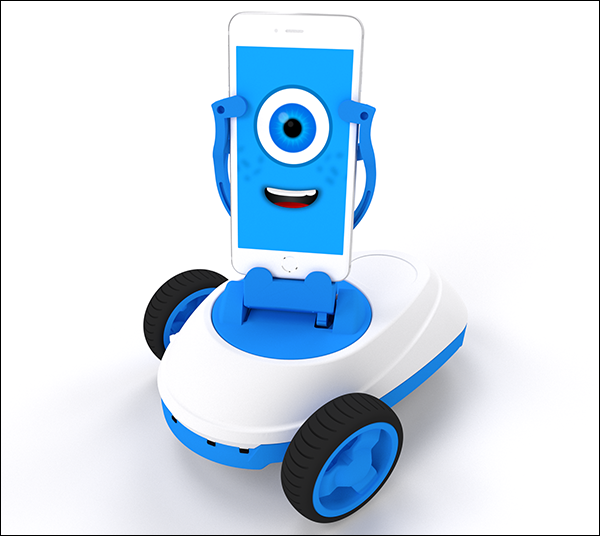
The adopt a robot initiative of the DREAM project has the following objectives:
To reach these objectives we have created an Educational Robotics project called The Robobo Project, so the students can interact with more realistic robots, using more advanced features like those included required in a cognitive architecture. The Robobo Project is based on a hardware platform called Robobo, and a set of STEM lessons supported on this platform, which are realized through a programming environment.
|
|
|
The Robobo hardware is made up of a wheeled base that transports a smartphone, which provides Robobo with high level sensing, communications and processing capabilities, and that controls the base actuators. The smartphone allows the development of lessons using more complex sensing modalities, like computer vision or speech recognition, together with high processing capabilities to execute them on-board. This permits proposing projects closer to the real applications that robotics demands nowadays, with a high degree of human-robot interaction (HRI) and using more realistic sensors, so students start to deal with them early on.
Robobo is developped at the University of Coruna, in collaboration with local industrial partners. Robobo plays a role in the dissemination plan of the DREAM project. The Robobo platform is property of the MINT company, an spin-off of the University of Coruna. MINT has been awarded with the first prize in the Vodafone Connecting for Good Galicia initiative for startup companies, which is funded by the Vodafone Foundation and the GAIN (regional innovation agency)
Learn more on Robobo: http://www.theroboboproject.com/
Follow Robobo on Twitter.

.jpg)
.png)